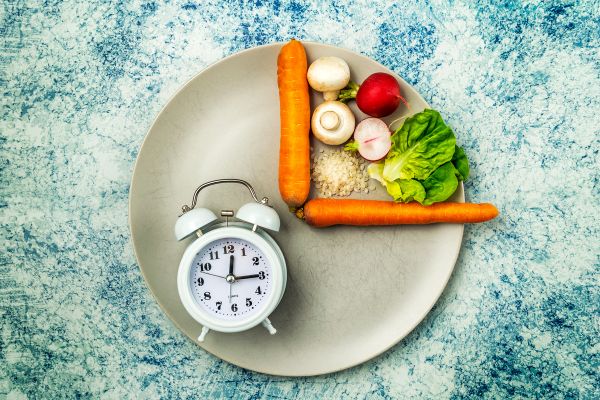Australian researchers have found that coffee in moderate amounts doesn’t increase the risk of developing cardiac arrhythmias. However, experts caution against excessive consumption.
Must Read: supplements you should avoid
A recent Australian study has disproved the idea that coffee or tea increases the incidence of arrhythmias in the heart.
A review of the study was published in JACC: Journal of the American College of Cardiology.
“There is a common perception that caffeine is a trigger for heart rhythm problems, often based upon anecdotal experiences,” stated Peter Kistler, MBBS and PhD, a lead author in the review and director electrophysiology at Alfred Hospital and Baker Heart and Diabetes Institute, Melbourne, Australia.
Healthline was told by him that a thorough review of medical literature does not support this conclusion.
Abnormal heart rhythms can cause the heart beat to be too fast, too slow, or too unevenly.
Some arrhythmias are not dangerous and may go unnoticed. However, some can lead to sudden cardiac arrest.
Atrial fibrillation (AFib) is the most common disorder of heart rhythm. It causes the heart beat to skip beats and beat quickly. It can lead to strokes if left untreated.
What was the conclusion of the study?
Multiple population-based studies were used to analyze the association between caffeine intake, arrhythmias atrial and ventricular, according to the authors.
According to the researchers, these studies consistently showed a decrease of AFib when caffeine intake is increased. One meta-analysis of 228,465 participants revealed that AFib frequency decreased by 6 percent.
According to the authors, caffeine does not affect ventricular arrhythmias. The severity and rate of VAs were not affected by consuming up to 500mg daily, which is equivalent to six cups of espresso.
An randomized study with 103 patients suffering from heart attacks that received 353 mg/day on average resulted in an improvement in their heart rate and no significant arrhythmias.
Never Miss: should you take herbal supplements
Two studies only found an increase in VA risk, with patients who consumed at least 10 and 9 cups of coffee per day.
Kistler, who consumes two to three cups of coffee per day, said the following: “I see many people who are told to quit drinking coffee by their doctors. This leaves them disappointed and doesn’t usually make any difference to their heart rhythm.”
He said that although I suspected that coffee did not cause an increase in arrhythmias, I didn’t realize that regular coffee drinkers may have fewer arrhythmias.
Kistler says that two to four cups of coffee per day is healthy for the heart. Regular coffee drinkers have lower rates of heart disease, heart rhythm problems, and coronary disease.
Kistler stated that although there isn’t any clear evidence coffee is harmful, it is possible to reduce or even avoid coffee.
Coffee: Beware
Nieca Goldberg is a New York-based Cardiologist who told Healthline that coffee can be a stimulant and that some people are sensitive.
- She noted that people with sensitive skin may experience palpitations.
- She generally takes a moderate stance on the subject.
- “Coffee isn’t as bad as it seems.” She said that there is also caffeine in chocolates and in colas.
- These foods can be consumed in moderation, allowing for individual body reactions.
- Goldberg stated that heart attack victims want to drink their coffee. “But you don’t want to get tachycardia [racing heart beat]].
- It’s not only American cuisines that are influenced by American studies. Genetics are also a part of this.
Also Read: a supplement and nutrition reminder
Similar advice can be found in the kitchen.
Kristin Kirkpatrick MS, RD. LD is a registered dietitian and wellness manager at Cleveland Clinic Wellness Institute. She says people need to “listen to their bodies and recognize what they can and cannot tolerate.”
Healthline: “I believe there are always genetics to be considered when coffee consumption is considered.”
She explained that this study wouldn’t have me telling my heart patients (who may choose to avoid caffeine) to increase their coffee intake, nor my patients with genetic susceptibility to the system clearing caffeine faster than normal. “I often tell people that caffeine is best when you listen to your body and know what you can and cannot tolerate.
She said, “I see many patients for the purpose nutrigenomics testing. This area of the test determines if they are certain gene types for NYP1A2 gene which cause them to be’slow’ caffeine metabolizers, which ultimately puts them at greater risk for high blood pressure and heart attack.”
It is simple to self-diagnose.
Do you feel jittery? Are your heart racing, unsteady or unable to sleep? Do you feel jittery, racing heart, unable to sleep, etc. when you have coffee? Kirkpatrick stated that if you do, then listen to your body and cut back to a level that makes you feel better. We need more research like this to determine if coffee can be a stimulant for the heart. She also said that measuring can be difficult. For example, mugs can hold more than cups.
She said that caffeine is now available in energy dinks and chocolate-covered espresso beans. It can be difficult to keep track of how much you eat when there are so many options.
Most Popular: health supplements
Instead of worrying about it, enjoy your coffee with a calculator that allows you to keep track of how much caffeine is in your system. It doesn’t matter what the numbers say, you should quit if it isn’t working for you.


